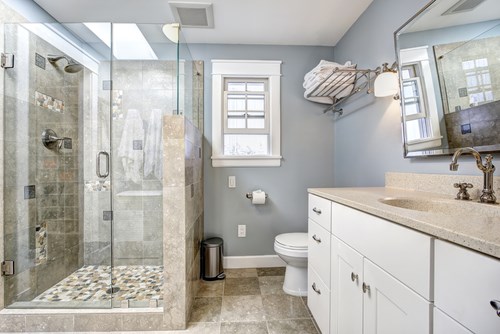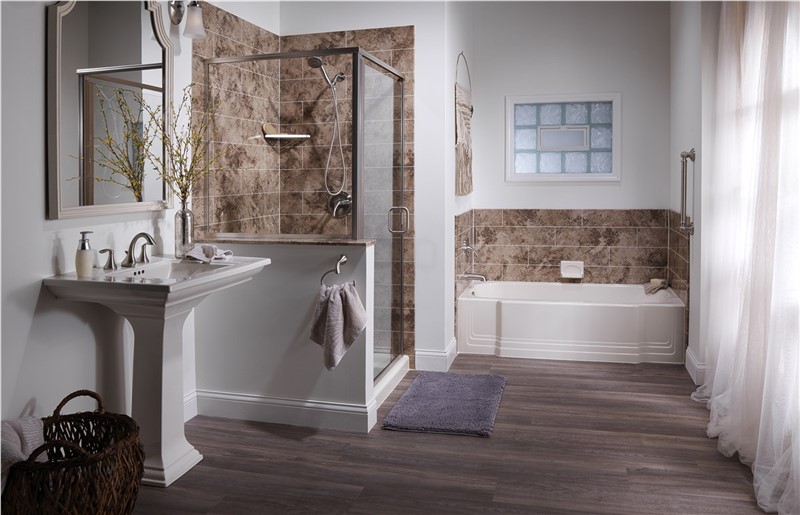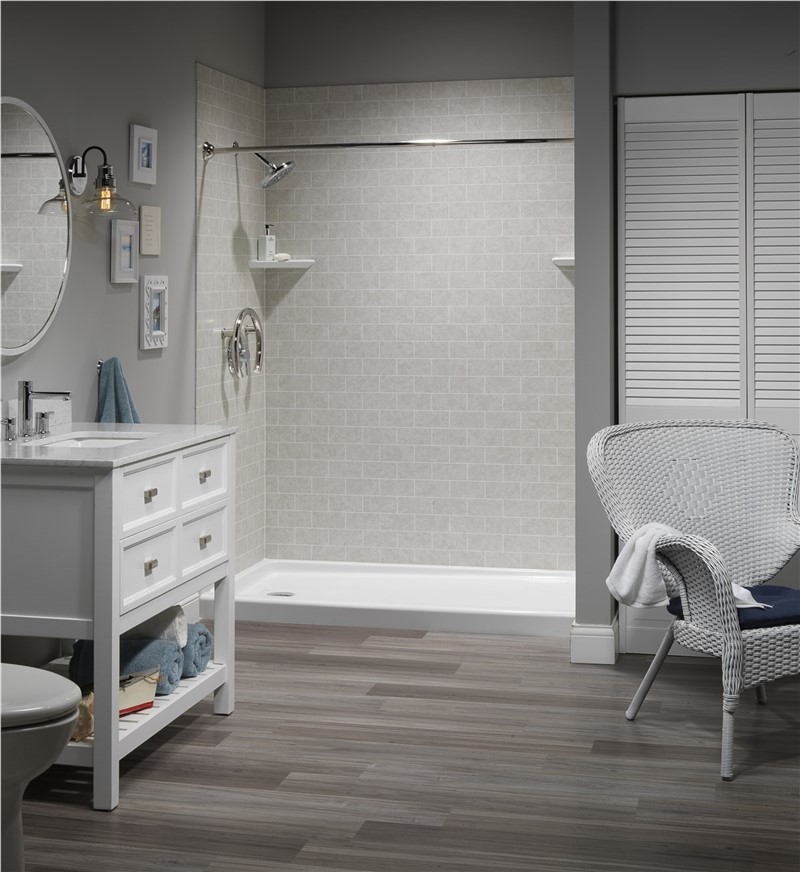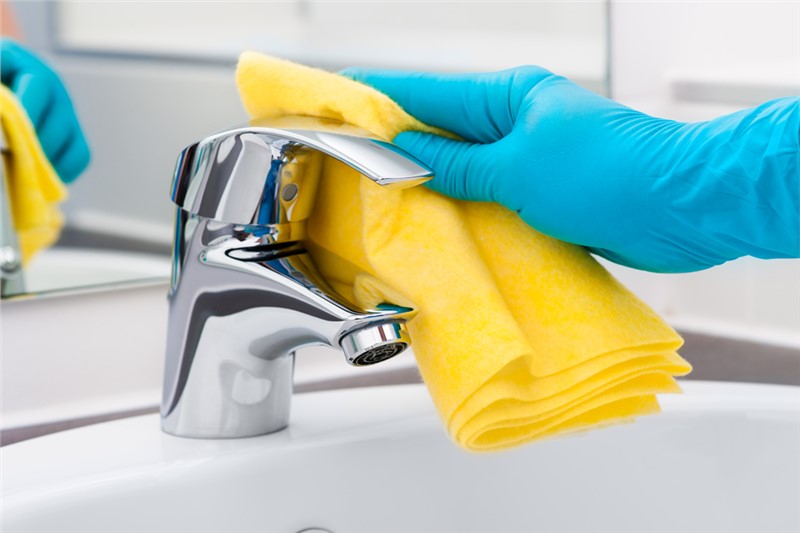
In this quick guide, we’re covering just a few of the most popular shower remodeling materials to help you choose your best balance of beauty, durability, maintenance, and cost.
Stone
Many homeowners love the distinctive look of real stone in their showers, whether it’s installed as glazed mosaic tiles or as larger, less finished sheets. Stone combines beautifully with many other materials, such as hardwood or ceramic, for a striking upscale design.
Pros:
- Offers Effortless Beauty That Can Be Hard to Imitate
- Creates a Luxurious, Spa-Like Ambience
- Has Pleasing Natural Textures and Variations
- Is Often Highly Desired by Homebuyers and May Increase Property Value
Cons:
- Can Be Very Expensive, Both for Material and Labor
- Weighs More Than Many Other Shower Remodeling Materials
- May Need to Be Continuously Resealed to Prevent Water Penetration and Damage
Ceramic/Porcelain Tile
Although tiles are fairly traditional, the available styles, sizes, and shapes have greatly expanded in recent decades. From retro subway patterns to contemporary asymmetrical designs, ceramic and porcelain tiles can create a stylish look that fits any aesthetic.
Pros:
- Offers a Nearly Endless Variety of Patterns and Designs
- Is Comparatively Easy to Replace in Case of Damage
- Can Be More Water-Resistant Than Natural Stone
- Has an Expected Lifetime of Several Decades or Longer
Cons:
- May Be Vulnerable to Cracking or Chipping Over Time
- Relies on Grout, Which May Attract Mold or Mildew
- Often Requires More Time-Consuming Labor to Install (Depending on the Pattern)
Glass
Especially when left fully transparent, glass lends a modern look to any bathroom. Its versatility makes it a great choice for tiled corner showers, sliding shower doors, or even freestanding all-glass shower enclosures.
Pros:
- Can Be Installed as Full Sheets, Smaller Glass Tiles, or Even Accent Trim
- May Make Smaller Bathrooms Feel Larger and More Open
- Is Unlikely to Get Scratched or Damaged Under Normal Use
Cons:
- Is Often More Brittle Than Other Tile Materials
- May Be Vulnerable to Unsightly Mineral Build-up or Water Stains
- Should Not Be Used for Floors Due to Risk of Slipping
Acrylic
Another popular shower remodeling material is acrylic—and its popularity has only grown as manufacturing technology has improved! Gone are the days of boring, thin, or low-quality acrylic panels; today’s acrylic shower wall surrounds provide some of the best benefits out there.
Pros:
- Is Fabricated to Order for a Seamless, Watertight Fit
- Is Guaranteed to Never Chip, Crack, or Peel
- Can Be Customized in Dozens of Colors, Textures, Tile Impressions, and More
- Often Costs Far Less Than Other Shower Wall Materials
- May Be Installed in a Matter of Hours
Cons:
- Requires Special Training for Proper Installation
- Cannot Accommodate Last-Minute Design Changes (Once the Acrylic Panels Are Already Made)
Discover the Right Shower Remodeling Material for You!
If you have any questions about these different shower wall materials, reach out to Bath Planet of Chicagoland for helpful recommendations based on 15+ years of experience. Although we specialize in factory-certified installations of Bath Planet’s acrylic shower walls, we’llonly recommend this material if we’re 100% confident that it’s the right choice for you! Call us or fill out our online form to get expert advice from trusted local shower remodelers today.



